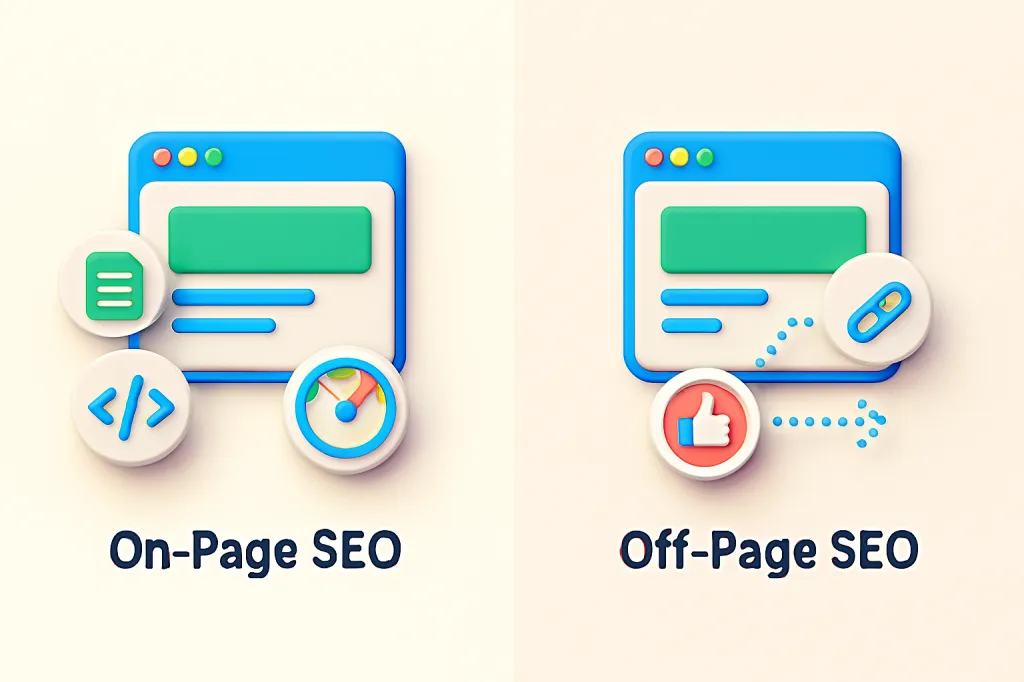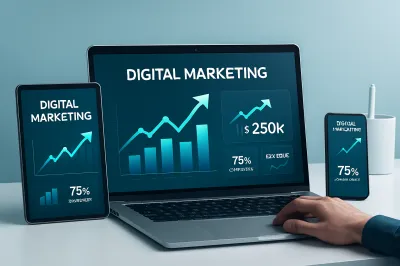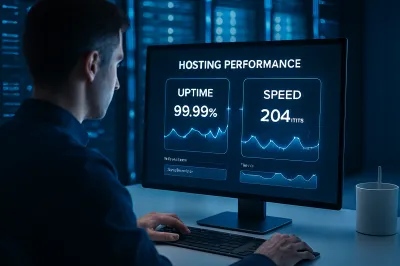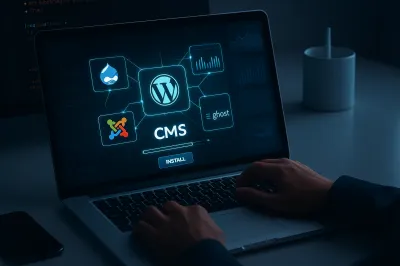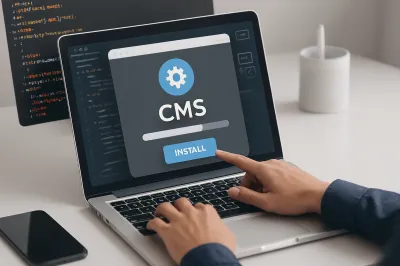In the world of Search Engine Optimization (SEO), you will constantly hear the terms "On-Page SEO" and "Off-Page SEO." For many beginners, these terms can be confusing. Are they different strategies? Should you focus on one over the other? The answer is that they are two sides of the same coin, and you need both to achieve high rankings on Google.
Think of it like preparing for a major theater performance. On-Page SEO is everything you do on your own stage—perfecting your script (content), setting up the lighting (site speed), and designing the costumes (user experience). Off-Page SEO is everything you do to promote the show—handing out flyers, getting positive reviews in the newspaper, and building a buzz around town.
This guide will clearly define both pillars of SEO, provide concrete examples of each, and explain how they work together to help your website succeed.
What is On-Page SEO? (Optimizing Your Own Website)
On-Page SEO (also known as on-site SEO) refers to all the optimizations you perform directly on your own website to make it more friendly for both search engines and users. You have 100% control over these factors. The goal is to help Google understand what your content is about and recognize it as a high-quality, relevant resource.
Key elements of On-Page SEO include:
- High-Quality Content: This is the single most important factor. Your content must be original, in-depth, and provide real value to the reader by answering their questions thoroughly.
- Keyword Optimization: Researching what your audience is searching for and strategically placing those keywords in your titles, headings, and throughout your content.
- Title Tags & Meta Descriptions: The title and description that appear in the search results. They must be compelling and include your target keyword to encourage clicks.
- Header Tags (H1, H2, H3): Properly structuring your content with headings helps Google understand the hierarchy and main topics of your article.
- Image SEO: Using descriptive file names and adding "alt text" to your images helps search engines understand what they are about.
- Internal Linking: Linking to other relevant pages on your own website helps users and search engines discover more of your content.
- Website Speed & Mobile-Friendliness: Technical factors that are crucial for user experience and are now major ranking signals for Google.
What is Off-Page SEO? (Building Your Website's Reputation)
Off-Page SEO (or off-site SEO) refers to all the actions taken outside of your own website to build its authority, reputation, and trustworthiness. These factors are largely out of your direct control and are about how other places on the internet perceive your site.
Key elements of Off-Page SEO include:
- Backlinks: This is the most critical component of Off-Page SEO. A backlink is a link from another website to yours. Google views high-quality backlinks as "votes of confidence," signaling that your content is valuable and trustworthy. The quality and relevance of the linking site are more important than the sheer number of links.
- Brand Mentions: Even when another site mentions your brand or website name without linking, search engines like Google are often smart enough to understand the association and use it as a reputation signal.
- Social Media Marketing: Sharing your content and engaging with users on platforms like Facebook, Twitter, and LinkedIn can generate social signals and drive traffic, indirectly influencing your SEO.
- Guest Blogging: Writing an article for another reputable website in your niche is a powerful way to earn a high-quality backlink and introduce your brand to a new audience.
Which One is More Important?
This is a trick question. You need both. They work together in a cycle.
A house with a perfect foundation and beautiful architecture (great On-Page SEO) won't matter if nobody knows its address or recommends visiting it (poor Off-Page SEO). Conversely, a massive marketing campaign (great Off-Page SEO) that sends thousands of people to a slow, confusing, and unhelpful website (poor On-Page SEO) will only result in disappointed visitors.
The correct strategy is to always start with On-Page SEO. Build a fantastic, fast, and valuable website first. Once you have a solid foundation, you can begin the long-term process of building your reputation across the web with Off-Page SEO.
Conclusion
In the simplest terms, the difference is:
- On-Page SEO is what your site says about itself.
- Off-Page SEO is what the rest of the internet says about your site.
A successful SEO strategy requires a balanced approach that focuses on creating an excellent on-site experience and then building a strong off-site reputation. By mastering both pillars, you'll be well on your way to achieving sustainable, long-term rankings on Google. 🏆
